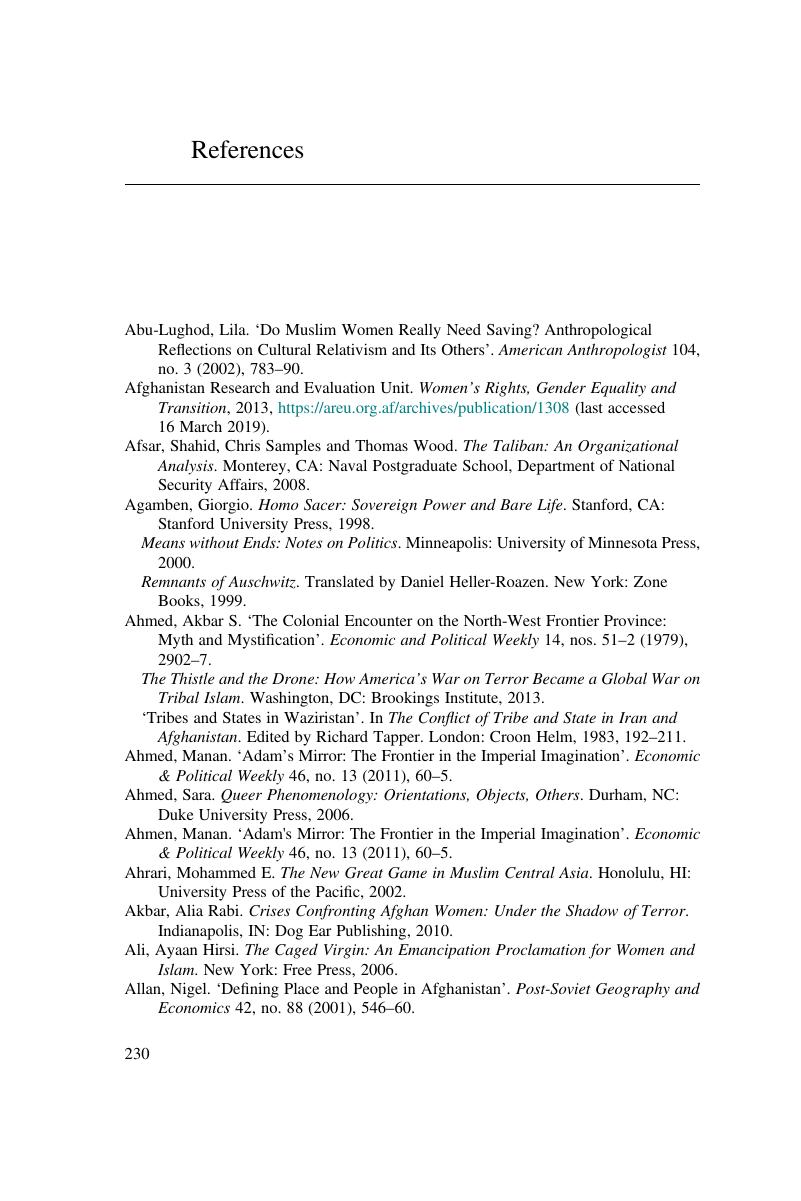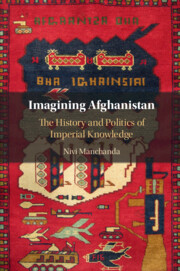Book contents
- Imagining Afghanistan
- Imagining Afghanistan
- Copyright page
- Dedication
- Epigraph
- Contents
- Figures
- Acknowledgements
- Introduction
- 1 The Construction of Afghanistan as a ‘Discursive Regime’
- 2 A Space Contested, or the ‘State’ of Afghanistan
- 3 The Emergency Episteme of the ‘Tribe’ in Afghanistan
- 4 Framed
- 5 Subversive Identities
- Coda
- References
- Index
- References
References
Published online by Cambridge University Press: 09 June 2020
- Imagining Afghanistan
- Imagining Afghanistan
- Copyright page
- Dedication
- Epigraph
- Contents
- Figures
- Acknowledgements
- Introduction
- 1 The Construction of Afghanistan as a ‘Discursive Regime’
- 2 A Space Contested, or the ‘State’ of Afghanistan
- 3 The Emergency Episteme of the ‘Tribe’ in Afghanistan
- 4 Framed
- 5 Subversive Identities
- Coda
- References
- Index
- References
Summary

- Type
- Chapter
- Information
- Imagining AfghanistanThe History and Politics of Imperial Knowledge, pp. 230 - 248Publisher: Cambridge University PressPrint publication year: 2020



